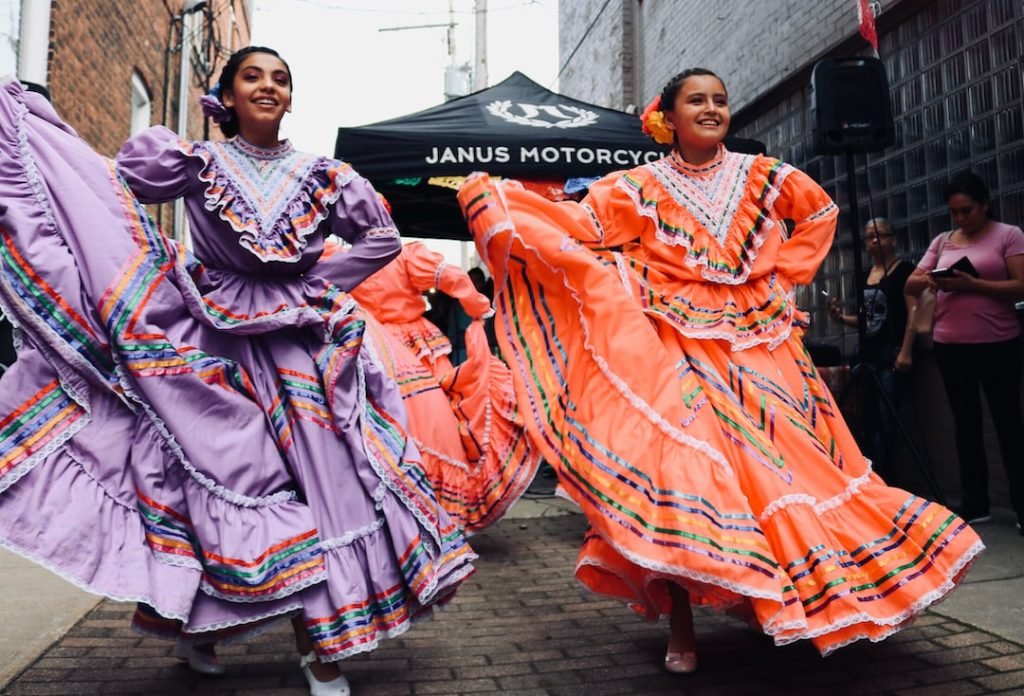

10 Essential Spanish Words for Travelers
When it comes to traveling, one of the most valuable skills you can have is the ability to communicate with the locals. This is especially true if you are traveling to a country where English is not widely spoken. Learning Spanish can greatly enhance your travel experience and open up a world of opportunities. From ordering food at a local restaurant to asking for directions, knowing even just a few basic phrases in Spanish can make a huge difference.
The benefits of knowing Spanish while traveling are numerous. Firstly, it allows you to connect with the local people on a deeper level. By making an effort to speak their language, you show respect and appreciation for their culture. This can lead to more meaningful interactions and a greater understanding of the destination you are visiting.
Secondly, knowing Spanish can help you navigate through unfamiliar situations more easily. Whether you need to ask for directions or order food at a restaurant, being able to communicate in Spanish will make these tasks much simpler. It can also help you in emergencies, as you will be able to ask for help or directions if needed.
Table of Contents
ToggleGreetings and Pleasantries: Hola, Adiós, Por Favor, Gracias
One of the first things you will need to learn when studying Spanish for travel is basic greetings and pleasantries. These phrases are essential for starting conversations and showing politeness. Here are some common Spanish greetings and farewells:
– Hola: Hello
– Buenos días: Good morning
– Buenas tardes: Good afternoon
– Buenas noches: Good evening/night
– Adiós: Goodbye
– Por favor: Please
– Gracias: Thank you
Using these phrases will not only help you make a good impression, but they will also make your interactions with locals more pleasant. Politeness is highly valued in many Spanish-speaking countries, so taking the time to learn these basic phrases will go a long way.
Directions: ¿Dónde está…?, Izquierda, Derecha
Getting around in a foreign country can be challenging, especially if you don’t speak the language. Learning basic phrases for asking for directions in Spanish can make navigating a new city much easier. Here are some common Spanish words and phrases for directions:
– ¿Dónde está…?: Where is…?
– Izquierda: Left
– Derecha: Right
– Recto: Straight ahead
– Cerca: Near
– Lejos: Far
– Estación de metro: Metro station
– Parada de autobús: Bus stop
By knowing these phrases, you will be able to ask for directions and understand the responses you receive. This will help you find your way around a new city and explore with confidence.
Ordering Food and Drinks: La cuenta, Una cerveza, Una botella de agua
One of the highlights of traveling is experiencing the local cuisine. Being able to order food and drinks in Spanish will not only enhance your dining experience, but it will also allow you to try new dishes and flavors. Here are some common Spanish phrases for ordering at a restaurant:
– La carta, por favor: The menu, please
– ¿Qué me recomienda?: What do you recommend?
– Quisiera…: I would like…
– Una cerveza: A beer
– Una botella de agua: A bottle of water
– La cuenta, por favor: The bill, please
Knowing these phrases will make it easier for you to communicate with waitstaff and ensure that you get the food and drinks you desire. It will also show that you have made an effort to learn about the local culture and cuisine.
Transportation: El aeropuerto, El tren, El autobús
When traveling to a new destination, you will likely need to rely on various modes of transportation. Knowing basic Spanish words for transportation can help you navigate through airports, train stations, and bus terminals. Here are some common Spanish words for transportation:
– El aeropuerto: The airport
– El tren: The train
– El autobús: The bus
– La estación: The station
– El billete: The ticket
– La salida: Departure
– La llegada: Arrival
By familiarizing yourself with these words, you will be able to ask for transportation information and understand the responses you receive. This will make your travel experience smoother and more enjoyable.
Accommodations: El hotel, La habitación, La llave

Finding suitable accommodations is an important part of any trip. Knowing basic Spanish words for accommodations can help you communicate with hotel staff and ensure a comfortable stay. Here are some common Spanish words for accommodations:
– El hotel: The hotel
– La habitación: The room
– La llave: The key
– La recepción: The reception
– La reserva: The reservation
– El ascensor: The elevator
– El desayuno: Breakfast
By learning these words, you will be able to check into a hotel, ask for assistance, and communicate any issues or requests you may have during your stay.
Shopping: ¿Cuánto cuesta?, El mercado, La tienda
Shopping is often a fun and exciting part of traveling. Whether you’re exploring local markets or browsing through boutique shops, knowing basic Spanish words for shopping can enhance your experience. Here are some common Spanish words for shopping:
– ¿Cuánto cuesta?: How much does it cost?
– El mercado: The market
– La tienda: The store
– El probador: The fitting room
– El efectivo: Cash
– La tarjeta de crédito: Credit card
– El descuento: Discount
By knowing these words, you will be able to ask for prices, negotiate, and make purchases with ease. It will also allow you to interact with local vendors and gain a deeper understanding of the local culture.
Emergencies: Ayuda, Policía, Hospital
While no one wants to think about emergencies while traveling, it’s important to be prepared for any situation. Knowing basic Spanish words for emergencies can help you seek assistance and communicate your needs in times of crisis. Here are some common Spanish words for emergencies:
– Ayuda: Help
– Policía: Police
– Hospital: Hospital
– Ambulancia: Ambulance
– Fuego: Fire
– Peligro: Danger
– Perdido: Lost
By learning these words, you will be able to ask for help, report incidents, and seek medical attention if needed. It’s always better to be prepared and have the necessary vocabulary to handle emergencies while traveling.
Cultural Phrases: ¡Salud!, ¡Buen provecho!, ¡Feliz viaje!
In addition to learning practical phrases, it’s also important to familiarize yourself with cultural expressions and customs. These phrases can help you connect with locals on a deeper level and show that you respect their traditions. Here are some common Spanish cultural phrases:
– ¡Salud!: Cheers!
– ¡Buen provecho!: Enjoy your meal!
– ¡Feliz viaje!: Have a safe trip!
– ¡Gracias por su hospitalidad!: Thank you for your hospitality!
– ¡Hasta luego!: See you later!
– ¡Buena suerte!: Good luck!
– ¡Felicidades!: Congratulations!
By using these cultural phrases, you will be able to engage in conversations and show appreciation for the local customs and traditions. It will also make your travel experience more enjoyable and memorable.
The benefits of taking Spanish classes and courses before traveling.
Learning Spanish before traveling can greatly enhance your travel experience and open up a world of opportunities. By taking Spanish classes or courses, you can gain the necessary language skills to communicate with locals, navigate through unfamiliar situations, and immerse yourself in the local culture. The advantages of learning Spanish for travel are numerous.
Firstly, knowing Spanish allows you to connect with the local people on a deeper level. By speaking their language, you show respect and appreciation for their culture. This can lead to more meaningful interactions and a greater understanding of the destination you are visiting.
Secondly, learning Spanish can help you navigate through unfamiliar situations more easily. Whether you need to ask for directions, order food at a restaurant, or seek assistance in an emergency, being able to communicate in Spanish will make these tasks much simpler.
Lastly, being prepared with the necessary language skills can make your travel experience more enjoyable and memorable. It allows you to fully immerse yourself in the local culture, try new foods, explore off-the-beaten-path destinations, and connect with locals on a deeper level.
In conclusion, learning Spanish for travel is a valuable investment that will greatly enhance your travel experience. By taking the time to learn basic phrases and vocabulary, you will be able to communicate with locals, navigate through unfamiliar situations, and immerse yourself in the local culture. So why wait? Start learning Spanish today and get ready for your next adventure!
FAQs
Why is it important to know these words?
Knowing these words can help travelers communicate better with locals, navigate their way around the country, and have a more enjoyable and immersive travel experience.
What are some of the essential Spanish words mentioned in the article?
Some of the essential Spanish words mentioned in the article include “hola” (hello), “adiós” (goodbye), “por favor” (please), “gracias” (thank you), “sí” (yes), “no” (no), “baño” (bathroom), “cuenta” (bill), “¿dónde está?” (where is?), and “¿cuánto cuesta?” (how much does it cost?).
Are there any tips for learning these words?
The article suggests practicing these words before the trip, using language learning apps, and trying to use the words in real-life situations while traveling.
What are some benefits of knowing these words?
Knowing these words can help travelers feel more confident and comfortable in a foreign country, make new friends, and avoid misunderstandings or cultural faux pas.
Can these words be used in other Spanish-speaking countries?
Yes, these words are commonly used in many Spanish-speaking countries, although there may be some regional variations in pronunciation or vocabulary.
If you want to learn Spanish, you can register for classes here. We look forward to hearing from you and helping you become fluent in Spanish!
If you want to learn Norwegian, you can register for classes here. We look forward to hearing from you and helping you become fluent in Norwegian.





